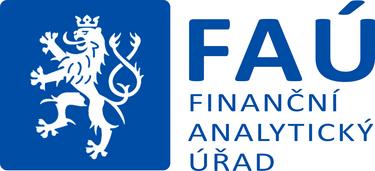Who is the regulator for crypto licenses in the Czech Republic?
In the Czech Republic, the regulation and oversight of cryptocurrency[1] licenses are primarily managed by the Financial Analytical Office (FAU).
Role of the FAU
The FAU plays a pivotal role in ensuring that entities engaged in crypto-related activities comply with the national and international standards for financial conduct. Its responsibilities include:
- Monitoring transactions to prevent money laundering[2] and terrorist financing.
- Issuing guidelines and requirements for crypto service providers.
- Conducting inspections and overseeing the compliance[3] of crypto businesses.
Importance of Regulation
Regulatory oversight[4] by the FAU is crucial for maintaining the integrity of the financial system and ensuring the security of transactions within the crypto market[2].
Cooperation with Other Regulatory Bodies
The FAU collaborates with other national and international regulatory bodies to ensure a cohesive regulatory environment[5] for cryptocurrencies[6].
Key Facts
- The FAU is the main body regulating crypto licenses in the Czech Republic.
- Compliance with FAU regulations is essential for operating a crypto business in the Czech Republic.
The Financial Analytical Office (FAU): A Central Role in Crypto Regulation
In the Czech Republic, the Financial Analytical Office (FAU) is the primary regulatory authority[7] responsible for overseeing the cryptocurrency sector. As part of its mandate, the FAU focuses on ensuring compliance with anti-money laundering (AML) and counter-terrorism financing (CTF) regulations within the crypto industry.The FAU’s responsibilities include the registration and supervision of crypto service providers, enforcing AML/CTF compliance, and collaborating with other financial regulatory bodies to maintain the integrity of the Czech financial system.
Collaboration with Other Regulatory Bodies
While the FAU plays a pivotal role in regulating crypto activities, it operates in coordination with other Czech and European Union financial authorities, including the Czech National Bank (CNB) and the Ministry of Finance. This collaborative approach ensures a comprehensive regulatory framework[8] that aligns with EU directives and standards, providing a balanced and integrated oversight of the crypto market.The synergy between these regulatory bodies facilitates the development of clear guidelines and policies, supporting the growth of a secure and innovative crypto industry in the Czech Republic.
Regulatory Framework and Compliance
The FAU, in conjunction with other regulatory entities, has established a robust framework for crypto licensing. This framework requires crypto businesses to implement effective AML/CTF measures, conduct due diligence, and maintain transparent operations. Companies seeking a crypto license must navigate this regulatory landscape[9], demonstrating their commitment to legal compliance and the protection of their customers.Adherence to these regulations not only ensures the legal operation of crypto businesses but also enhances their credibility and trustworthiness among clients and partners.
Conclusion
The Financial Analytical Office (FAU) is at the forefront of crypto regulation in the Czech Republic, supported by a network of financial authorities. Together, they create a regulatory environment that balances the promotion of innovation with the need for security and compliance.For crypto companies, understanding the role of the FAU and its requirements is essential for navigating the Czech crypto licensing process successfully. Compliance with FAU regulations is a critical step towards establishing and maintaining a reputable and sustainable crypto business in the Czech Republic.
- Cryptocurrency — Digital or virtual currency secured by cryptography, facilitates secure, anonymous transactions.
- Money Laundering — The process of making large amounts of money generated by a criminal activity appear to be legally obtained.
- Compliance — The act of adhering to legal standards and regulations established by governmental bodies and regulatory agencies, particularly in the context of financial operations and transactions involving cryptocurrencies.
- Regulatory Oversight — The supervision by authorities to ensure that market participants comply with legal and ethical standards.
- Regulatory Environment — The legal and regulatory framework within which ICOs must operate, varying significantly by country.
- Cryptocurrencies — Digital or virtual currencies that use cryptography for security and operate on a decentralized system, unlike traditional currencies.
- Regulatory Authority — The governmental or independent body responsible for overseeing, regulating, and licensing gambling activities within a jurisdiction.
- Regulatory Framework — A set of regulations and guidelines established by authorities that govern the operation of financial markets and instruments.
- Regulatory Landscape — The set of laws, guidelines, and policies that govern the use of virtual assets across different regions.

